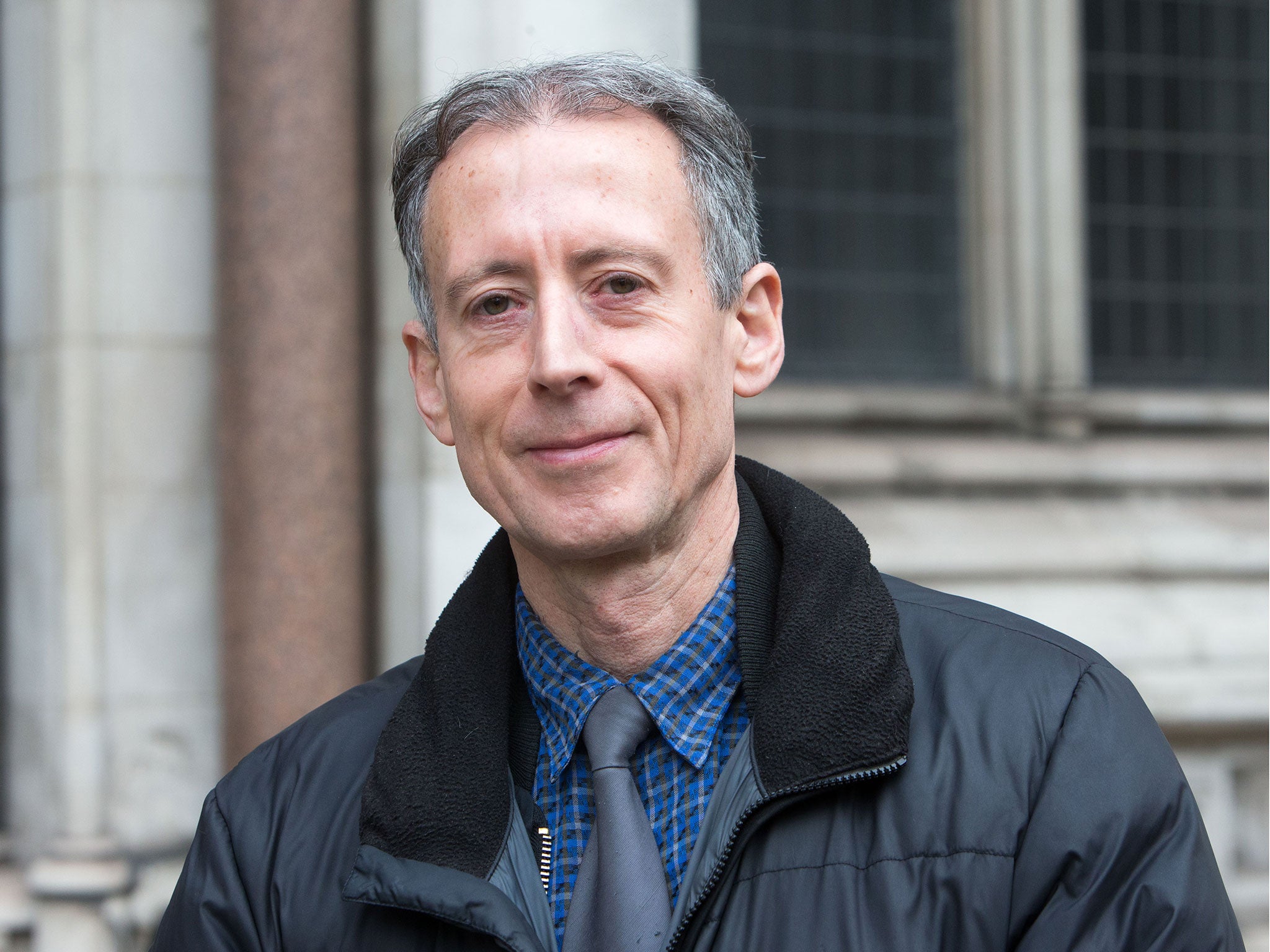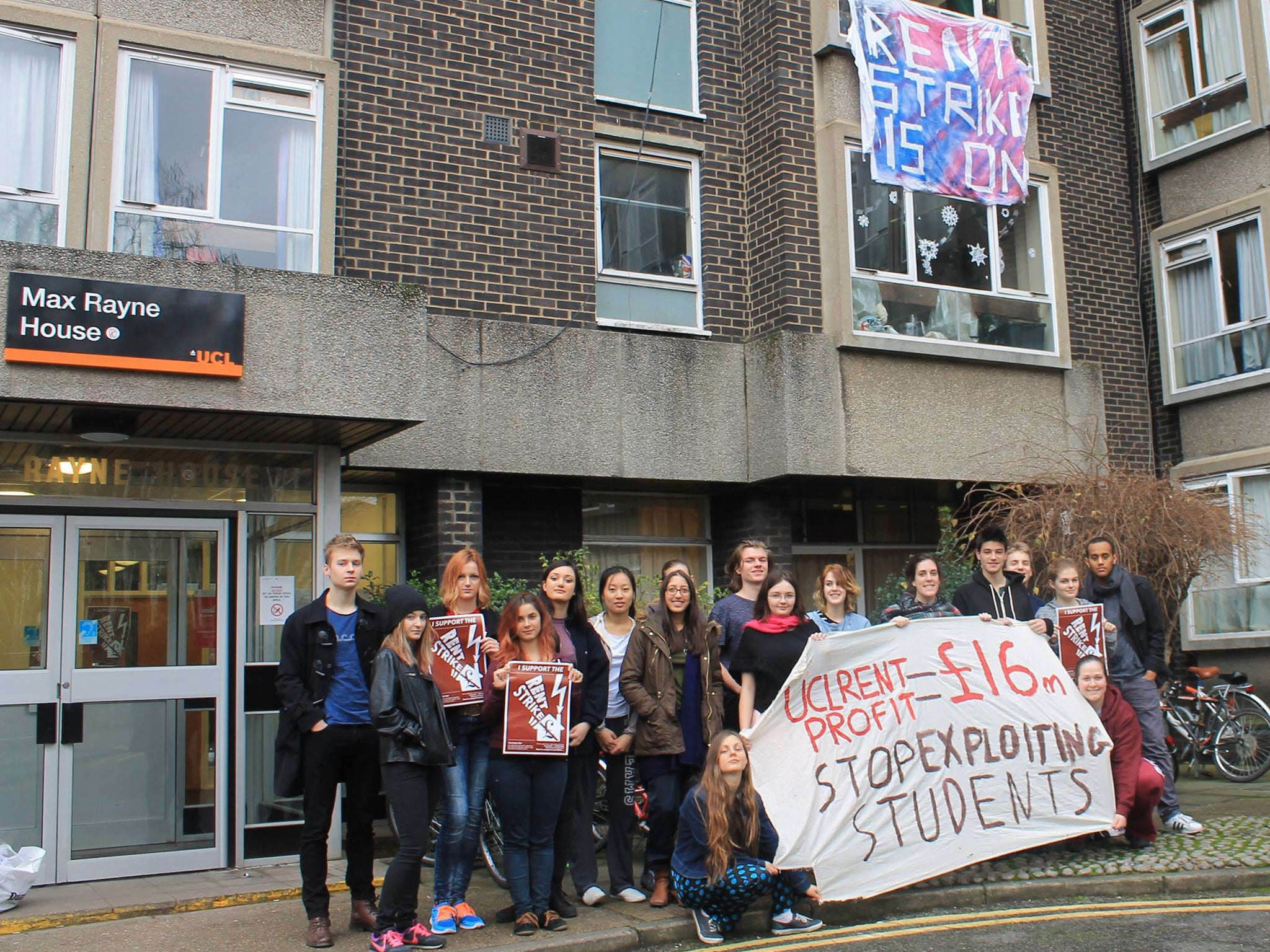Universities who censor student media pose as great a threat to free speech as 'safe spaces', warns Peter Tatchell
A freedom of expression row has erupted at UCL after the university was accused of threatening a student reporter

University officials who censor student journalists pose as great a threat to free speech as controversial “safe space” policies, a leading activist has said.
A freedom of expression row has erupted at University College London (UCL) after The Independent revealed that the institution had been accused of threatening and intimidating one of its student reporters.
Rebecca Pinnington, 21, said she was made to feel “intimidated, anxious and scared” after UCL warned she may face disciplinary action - including expulsion - for possessing confidential documents found on a public university server.
The university initially denied that threats had been made, but last night conceded that the letter handed to Ms Pinnington “set out the full range of penalties available in the disciplinary code”.
Amid an outpouring of support for the student journalist, UCL also confirmed she would face no disciplinary action.
The National Union of Journalists said: “It appears that the university has behaved in a disgraceful fashion by intimidating her in this way.”
Human rights activist Peter Tatchell - who has spearheaded the campaign against “no-platforming” and safe space policies in student unions - said university authorities should promote, not inhibit, the liberty of the press.
“Universities that bid to censor or punish student journalists are as much a threat to free speech as the way NUS no-platform and safe space policies are sometimes being applied to close down debate,” he told The Independent.

“Most reasonable people would interpret as a threat the way UCL set out the range of disciplinary options that could be taken against Rebecca Pinnington. The information she sought to disclose about UCL student rents is an issue of legitimate public interest. She is a whistle-blower and should be applauded, not menaced.”
The confidential report obtained by Ms Pinnington was left openly accessible to university staff and students last month, allegedly via UCL Head of Estates Andrew Grainger’s Microsoft Outlook Calendar.
In an article on student news website Pi Media, Ms Pinnington wrote: “Grainger’s timetable was set to public, so we could see details of meetings, read relevant emails and access confidential documents… this was perhaps the worst kept secret at [University College London Union] offices.”
It is understood the file contained financial forecasts that the university would make an increased cash surplus from its student accommodation this year, despite detailing a decline in the number of beds available within student halls.
The information has been described as “particularly relevant” in light of an on-going rent strike on the university campus.
The Independent has seen a copy of a written agreement given to Ms Pinnington which makes clear that UCL reserved the right to pursue action including “dismissal without notice and potential exposure to court proceedings” if she did not hand over the files.
In a statement on Saturday, UCL said: “When Ms Pinnington met with [UCL Vice Provost] Rex Knight, he made clear that he or Mr Grainger would be willing to be interviewed by Pi Media and that the interview questions could draw on material that had been accessed. It is therefore surprising that UCL has been accused of attempting to censor the student press.”
In response, Ms Pinnington said: “[Mr Knight] actually said that if we were to interview him or Grainger we could touch on the issues raised by the documents, but couldn’t explicitly cite their contents. Telling a student paper they cannot publish one thing, and then offering them something that’s better for your PR, is still censorious.”
Ms Pinnington described the response to her story as “overwhelmingly supportive”, adding that she had been approached by some of the country’s top journalists “who agree that UCL should be held to account.”
Join our commenting forum
Join thought-provoking conversations, follow other Independent readers and see their replies
Comments
Bookmark popover
Removed from bookmarks